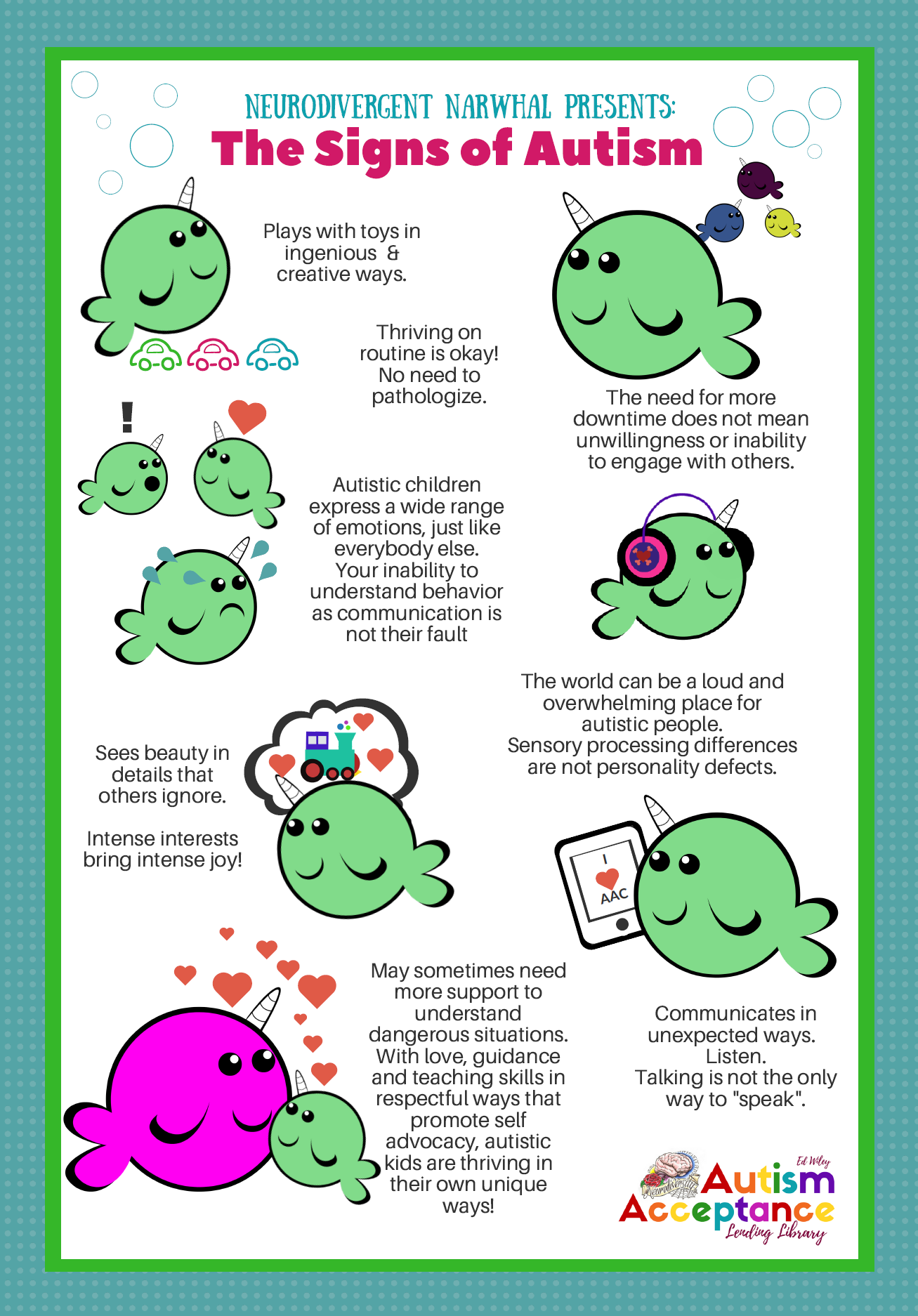
At its core, Autism is a social/communication difference in an individual that differs from the general population. Autism is not equivalent to mental disabilities or low IQ. Someone with Autism can have high or low IQ, but they will have social communication issues, which may appear as nonspeaking, hyper verbal, not understanding social cues or social constructs, and/or breaks away from social constructs. People with Autism can have low or high support needs, but will have some type of support need. While the communication difference is the biggest sign of Autism, there are other coexisting signs that may help identify if your child has Autism.
In certain situations Autism can be diagnosed as early as 14 months. Children with Autism tend to develop typically within the first year of life and meet most major milestones like crawling and walking. One of the first indicators for Autism could be that the child is not responding to their name. This could appear as early as 9 months old. Another early indicator can be avoiding eye contact or minimal eye contact. A few more signs could be as followed:
- Delayed speech and language skills
- Has obsessive interests
- Avoid eye contact
- Makes noises that do are not typical to cooing
- Not responding to their name by 9-12 months
- Does not point or respond to pointing
- May not play “pretend” games by 18 months
- Flap their hands, rock their body, or spin in circles
- Get upset by minor changes
- May have been extra fussy as infants
- May have unusual sleep patterns
- Has flat or inappropriate facial expressions
- Laughing at inappropriate times or at nothing (may be silent seizures and should be checked by a neurologist)
- May think your child cannot hear because of lack of response
While these signs can show up in early infancy, other signs might not be as noticeable until the child is older.
- Have trouble understanding other people’s feelings or talking about their own
- Repeating words and phrases over and over
- Repeats words from others/shows – called scripting
- Gives unrelated answers to questions
- Get upset by minor changes
- Have unusual reactions to the way things smell, sound, taste, look, or feel
- Only interacts to achieve a desired goal – goal oriented versus social oriented
- Has flat or inappropriate facial expressions
- Does not understand personal space boundaries – steps on feet, leans on people/puts weight on people/leans on tables
- Avoids or resists physical contact
- Not comforted by others during distress
- Is very organized/gets upset over minor changes
- Has to follow certain rules – may be made up by the individual or may be from an external source.
- Short attention span or hyper focus
- Unusual eating and sleeping habits
- Has longer than normal tantrums without being calmed – can last hours – called Meltdowns
- May be sensory seeking – likes touching, smelling, or feeling certain things
- May be sensory avoiding – does not like touching smelling, or feeling certain things
- May have a mixture of sensory seeking/avoiding – likes smelling one thing but avoids lights.
- Obsession with an object that may seem unusually – broom, brush, etc.
- Has “safe” foods which may be very limited
- May like to watch kids play, but does not engage typically
- May not like that others aren’t playing the way they want to play
- May need more breaks and independent time
Signs of Autism from a Neuroffirming lens
Neurdivergent (A-typical thinking) minds are vital to having a flourishing, beautiful, and full society. Neuroaffirming means that we don’t see people with neurodivergence as broken or wrong, but beautifully different. People with A-typical thinking patterns see the world in a different way and can have powerful skills. Signs of a neurodivergent mind are:
- The ability to hyperfocus
- Great at pattern recognition
- Amazing memory abilities
- Out of the box problem solving
- Visualization
- Artistic
- Many have higher IQs than the general population
- May be considered “gifted” academically
- Knows what they like and what they don’t like
- Questions social norms
- Has a clear black and white thinking pattern
- Has a high standard for justice
- Higher sensitivity to energies: people, electricity, volume, sounds, etc.
- Have a strong desire for autonomy: having control over one’s own body
- Having a beautifully unique mind